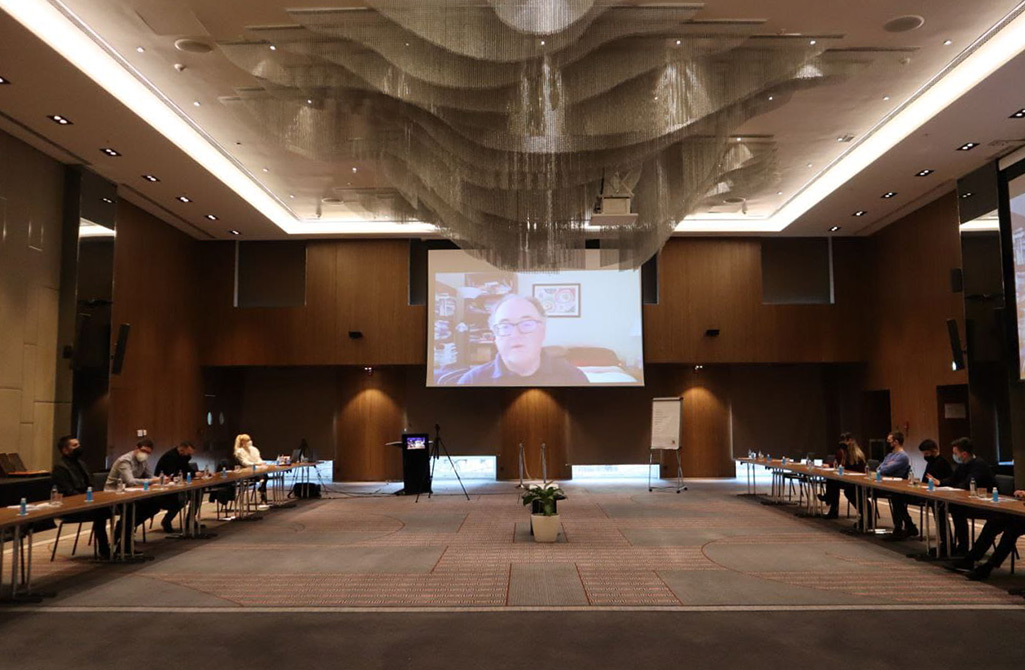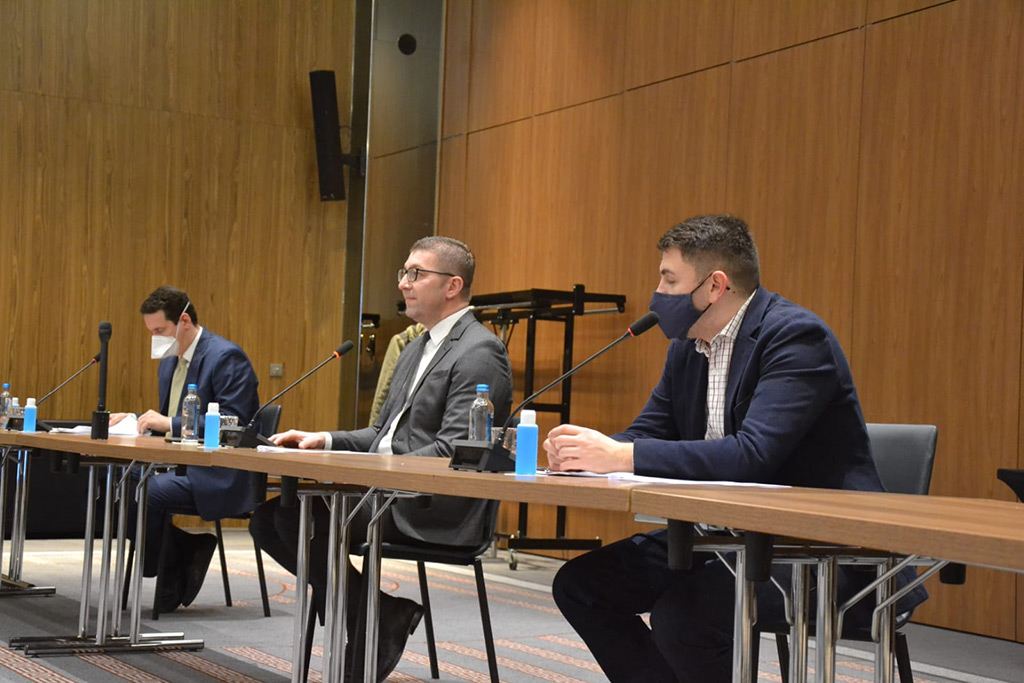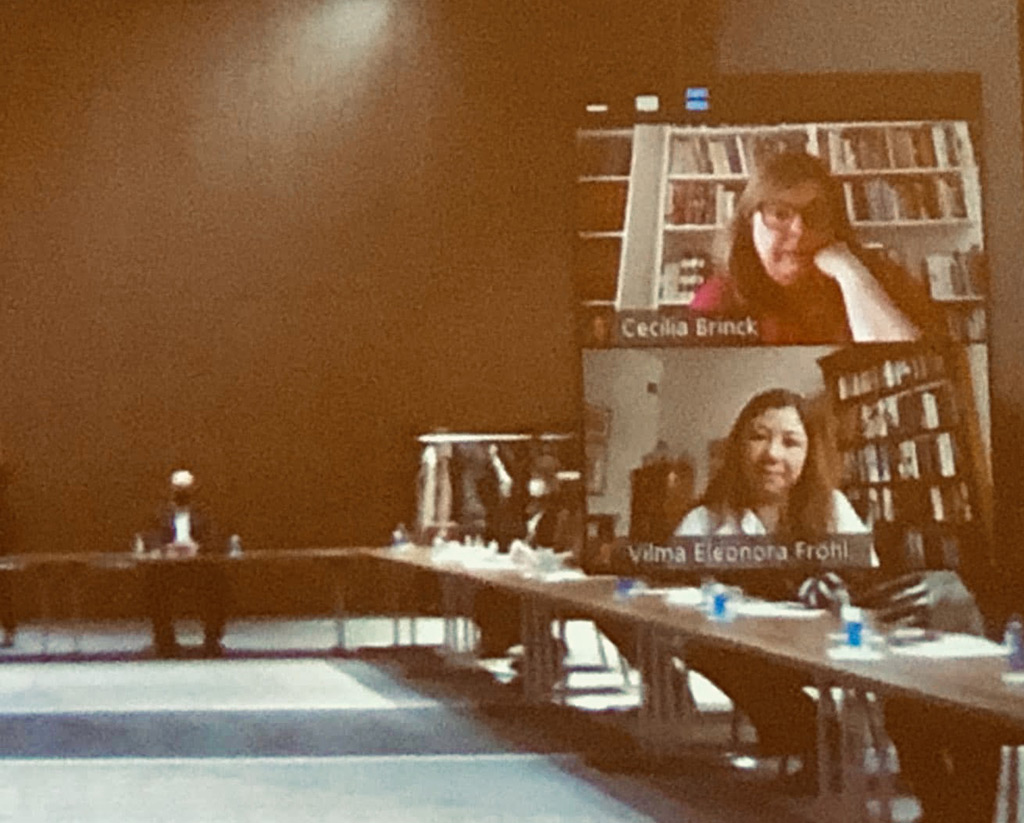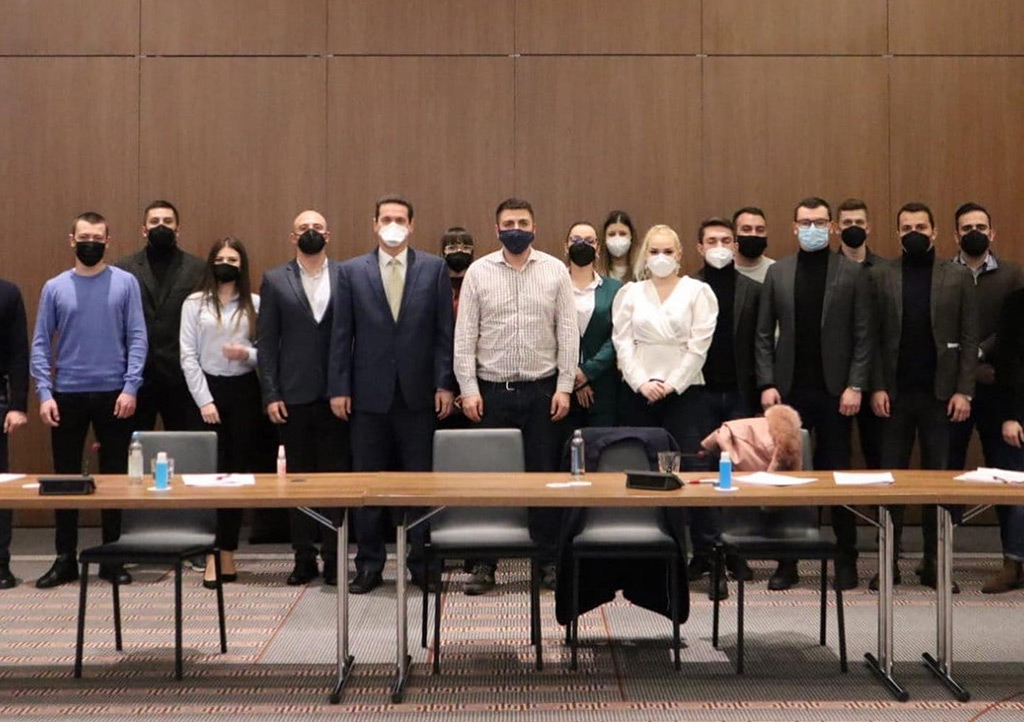News
Carl Bildt: The West must be decisive against Russia
In an article in Washington Post, Jarl Hjalmarson honorary chairman and former prime minister of Sweden Carl Bildt, describes the ongoing development and escalation of force in Eastern Ukraine. Over the last weeks, heavy Russian military buildup along the Ukrainian border has been condemned by the European Union and the United States. Bildt points out there is evidence of trains moving military tanks from Siberia over the Russian border to Ukraine and intelligence reports of large redistribution of personell in the Russian military forces.
After the Russian war in Eastern Ukraine which started after the illegal annexation of Crimea, European support for Ukrainian independence and sovereignty have been crucial. In the case of a Russian escalation of the conflict, Carl Bildt suggests that the West must take decisive action and face Russia with a united and robust diplomatic front.
Worsening health status of Alexey Navalny
After almost 80 days of imprisonment at a penal colony, the health of Russian opposition leader Alexey Navalny is deteriorating. Navalny started a hunger strike as a protest to Russian authorities denying him his request to seek medical care after experiencing severe cough and fever.
Navalny, who has stated that he won’t commit suicide in Russian prison – a well known ”modus operandi” and technique for Russian authorities to get rid of oppositional activists in prison – is still denied adequate medical care. The Navalny case is very similar to the well known case of the Russian lawyer Sergei Magnitskiy, who died in Russian prison under mysterious circumstances in 2009. Mr. Magnitskiy fought for rule of law in Russia for years and was arrested in 2008, after having called for judicial investigation into the cleptocracy of Vladimir Putin and the Kremlin.
The death of Mr. Magnitskiy brought attention to the need in the U.S. and the European Union for new legislation targeting Russian authorities. Named after Sergei Magnitskiy, the Magnitskiy Acts make it possible for the European Union and the U.S. to continously sanction perpetrators of human rights and democracy around the world.
The European Union and the Biden administration have condemned the Russian handling of Mr. Navalny’s case and called for his immediate release. The Jarl Hjalmarson Foundation continues to follow the situation closely.
Ulf Kristersson calls for the release of Nikolaj Kazlou
The leader of UCP, the main centre-right party of Belarus and long time partner of the Jarl Hjalmarson Foundation, was detained by Belarusian police on March 22nd. Nikolaj Kazlou has since been taken to the Akrestyna detention center, known for its brutality and torture of political prisoners. With the arrest of Kazlou, approximately 298 political prisoners are now detained or arrested in Belarus.
The leader of the Moderate Party, Ulf Kristersson, has called for the release of Kazlou and other political prisoners. In a statement released Tuesday evening, Mr. Kristersson said that it is crucial for the world community and the European Union to continue the political pressure on the dictatorship in Belarus. ”The democratic movement in Belarus has shown unprecedented courage, and the democratic world must stand by their side”, Mr. Kristersson emphasized.
Christian Danielsson appointed EU mediator in Georgia
Following the arrest of the opposition leader Niki Melia in the end of February, the political crisis has emerged in Georgia with escalated tensions between the government and the opposition. The president of the European Council, Mr. Charles Michel, visited Tbilisi in the beginning of March to facilitate a dialogue between political stakeholders in Georgia. Now, he has appointed Swedish diplomat Christian Danielsson as his special envoy to engage in EU-backed dialogues between the government and the opposition. Mr. Danielsson, who currently heads the EU Commissions representation in Sweden, has previously served as deputy secretary general for the commission as well as director-general for neighbourhood and enlargement negotiations. He is expected to visit Georgia in the coming days. His appointment has been welcomed by the president of Georgia, Ms. Salome Zurabishvili.
UNM party leader brutally arrested in Georgia
Following yesterday’s forming of a new government, led by hardliner prime minister Irakli Garibashvili, the leader of the opposition Niki Melia was today brutally arrested at the headquarters of his party, UNM.
Seen as a hardliner and political apprentice of former prime minister and Russian businessman Benidzi Ivanishvili, Mr. Garibashvili stated in parliament – before the formal election of prime minister – that the UNM is a ”criminal organization”. He directly confronted his opponents with threats to further increase pressure on the opposition.
Garibashvili succeeded former prime minster Giorgi Gakharia, who surprisingly announced the government’s resignation after having opposed the politically motivated calls for the detention of the country’s opposition leader, Nika Melia. Now, with a new hardline government, the pressure and harassment of the country’s democratic opposition continues with brutal force.
New government in Kosovo
Following the snap elections in Kosovo on February 14th – the fifth round of elections in eleven years – Kosovo will soon have a new government under the leadership of Albin Kurti.
Albin Kurti, who is a former student revolutionary leader, won the elections with a landslide. The opposition, including the cooperation party of Jarl Hjalmarson Foundation, LDK, worked hard but ended up third in place and will now form the opposition in the country.
The new government faces several challenges. The pandemic is tormenting Kosovo, with over 120.000 cases of infection and no government plan to start procuring nor handing out vaccines to the public. Besides the pandemic situation, unemployment is on a record high level, with almost one third of the country’s population out of work and a national economy on decline.
The relationship with Serbia is worse off than in years, especially following the stalled discussions between Prishtina and Belgrade last year. The new Kurti government however, has clearly stated that dialogue with Serbia is not a priority, and that it rather wishes to see Kosovo in a closer union with Albania.
The Jarl Hjalmarson Foundation continues to monitor the developments closely and will work with our regional and national partners in promoting freedom, democracy and rule of law.
Youth Conference Principles for a Free Society, Skopje
From January 29-31, 2021 members of the youth organization from VMRO-DPMNE met in Skopje to attend the conference Principles for a Free Society.
During the event they had the opportunity to discuss about democracy, human rights, freedom, justice and other political topics which are important for the youth.
Göran Lennmarker awarded royal medal by H.M. King Carl XVI Gustaf
On January 28th, the Royal Court of Sweden announced that Göran Lennmarker, former Member of Parliament and former Chairman of the Jarl Hjalmarson Foundation, will receive His Majesty the King’s medal in the 12th size with blue ribbon. The royal medal is one of the highest awards in Sweden.
Göran Lennmarker was elected to the Swedish Parliament in 1991. He served as a Member of Parliament for the Moderate Party until 2010, and has held various positions such as Chairman of the Committee on Foreign Affairs and Chairman of the Committe on EU Affairs. Mr. Lennmarker was Chairman of the OSCE Parliamentary Assembly 2006-2008, and Chairman of Jarl Hjalmarson Foundation between 2009 and 2017.
He is awarded the medal with the motivation ”for outstanding public service”. His Majesty the King will present Mr. Lennmarker with the medal at the Royal Palace when a safe ceremony can be held with regard to the pandemic.
Aleksei Navalny continues his work from prison
The political activist Aleksei Navalny was immediately arrested when returning to Russia. He returned after receiving medical care in Germany after the Kremlin ordered assassination attempt in October. He was charged with accusations of crimes connected to money laundering and was firstly sentenced to 30 days in Russian prison.
The arrest of Aleksei Navalny sparked nationwide protests in Russia, leading to rallies with tens of thousands of peaceful protesters on January 23rd, demanding the immediate release of the jailed political activist and calls for president Vladimir Putin to resign. Rallies and demonstrations were held in over 100 Russian cities with 50.000 attendees in Moscow. International media reported that at least 3.500 protesters were detained by Russian police in the aftermath of the protests.
All these numbers mark a record for Russian anti-Putin protests in several years. The crackdown from the Russian government has also been directed towards the team and family of Navalny, with his wife being arrested together with the heads of his offices in both St. Petersburg and Moscow.
Navalnys return to Russia has sent shockwaves in the country, as well as in the Kremlin. Although himself behind bars, the team of Navalny published a video documentary showing the enormous palace near the Black Sea – estimated to over 1.4 billion dollars of worth – claimed to have been built for Vladimir Putin with Russian tax money. The documentary has been viewed on Youtube over 100 million times.
The protests in Russia should also be seen as acts of solidarity with the Belarusian nationwide protests. It was allegedly reported that several crowds in Russia chanted ”Long live Belarus” and waived with the red-and-white flags of Belarus, which is still banned in the country.
Aleksei Navalny’s team issued a statement from Navalny on Thursday 28th of January, seen as a motivational imperative ahead of the planned nationwide demonstrations which are to be held in the coming weekend. Navalny said:
“Come on out, don’t be afraid of anything. Nobody wants to live in a country where tyranny and corruption reign. The majority is on our side.”
Navalny, along with other oppositional activists in Russia, has promised to stay on with the demonstrations every Saturday. In his own case, the date February 2nd is of crucial importance. That is when the Russian court will determine whether or not he will be sentenced to three-and-half years in Russian prison.
He has stated publicly that he does not intend to committ suicide, if he were to be found dead in prison with the authorities falsely claiming suicidie. The chilling statement of Navalny really indicates the brutality, force and reprecussions that politicial activitists face in Russia.






